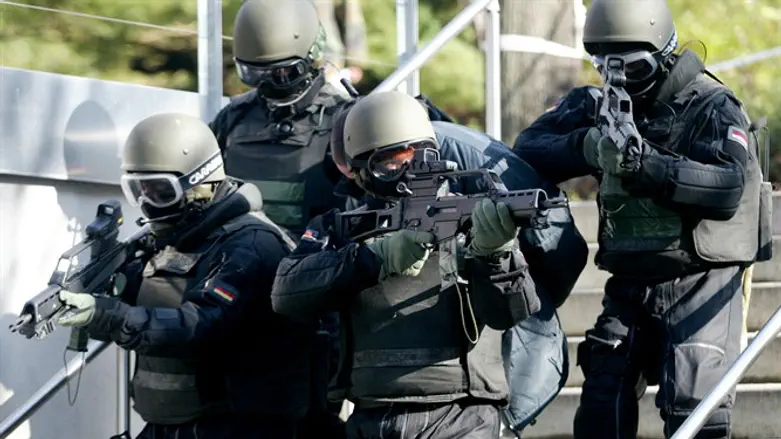
Germany's defense minister said Tuesday she had ordered the partial dissolution of the elite KSK commando force, which has come under growing criticism over right-wing extremism in its ranks.
The KSK had "become partially independent" from the chain of command, with a "toxic leadership culture", Annegret Kramp-Karrenbauer told the Sueddeutsche Zeitung newspaper.
Created in 1996, the elite commando force consists of some 1,400 soldiers charged with sensitive and risky missions such as hostage rescue operations or anti-terror action abroad.
But suspicions that some members harbor far-right sympathies have plagued the force in recent years, even as Germany has been hit by a wave of extreme-right violence including deadly attacks on migrants, Jewish people and politicians.
Kramp-Karrenbauer set up a working group in May to tackle the problem, which on Tuesday presented her with a report on its findings.
The KSK "cannot continue to exist in its current form" and must be "better integrated into the Bundeswehr," said the report, seen by AFP.
It complains that "compartmentalization and a self-image that is partly misguided must be broken down," while also praising those who have helped to expose extremism and promote reform.
"Anyone who turns out to be a right-wing extremist has no place in the Bundeswehr and must leave it," Kramp-Karrenbauer told public radio station SR3.
One of the force's four companies, where extremism is said to be the most rife, will be dissolved and not replaced, the minister said.
The KSK's overall commander Markus Kreitmayr will remain in place, but the unit will not participate in exercises or international missions until the restructuring is complete.
Kramp-Karrenbauer described the latest findings about the KSK -- including the disappearance of 48,000 rounds of ammunition and 62 kilograms of explosives -- as "disturbing" and "alarming."
An internal investigation must now determine whether the missing munitions were stolen or whether it is down to sloppy bookkeeping at the unit.
A report on the progress of the reforms is expected in October.
Germany's Military Counter-Intelligence Service (MAD) has said some 600 Bundeswehr soldiers are suspected of right-wing extremism, including 20 in the elite force.
The armed forces have in recent years suffered a series of revelations over embarrassing associations with Germany's militaristic past.
In April 2017, revelers at a farewell party for a KSK commander allegedly threw pig heads, played right-wing rock music and made the Nazi salute.
In the course of an internal investigation, weapons were subsequently found on the private property of a KSK soldier in Saxony, who had raised suspicions because of his radical positions.
In 2018, the then-defense minister Ursula von der Leyen ordered the military to cleanse itself of all links to the Wehrmacht after learning that steel helmets and memorabilia of the Nazi-era army were openly displayed at one of its barracks.
She also ordered some barracks still named after World War II figures to be renamed.
Germany has been rocked by a string of extreme-right attacks over the past 12 months.
A gunman with apparent far-right beliefs killed nine people at a shisha bar and a cafe in the city of Hanau, near Frankfurt, in February, while two people were killed in an attack targeting a synagogue in Halle, near Leipzig, last October.
And a German neo-Nazi went on trial this month for the 2019 murder of pro-refugee politician Walter Luebcke.
Interior Minister Horst Seehofer has called right-wing extremism and terrorism "the biggest danger for democracy in Germany," promising a beefed up security response.